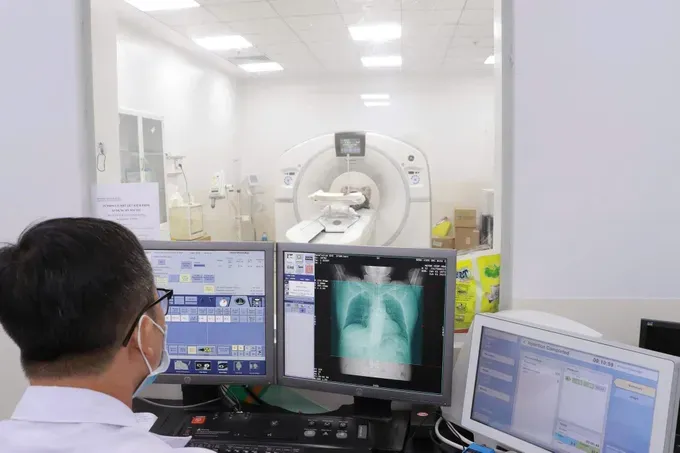
Attending the event was Vice Secretary of the Ho Chi Minh City Party Committee and Chairman of the Vietnam Fatherland Front Committee of Ho Chi Minh City, Nguyen Phuoc Loc.
Speaking at the conference, Associate Professor Dr. Nguyen Anh Dung, Deputy Director of the Ho Chi Minh City Department of Health, said that following the recent consolidation, the city’s healthcare system now comprises 164 hospitals, 38 medical centers, 168 commune-level health stations, 110 social welfare centers, 15,611 private pharmacies and pharmaceutical businesses, and more than 10,000 private clinics.
In his directive remarks at the conference, Vice Secretary of the Ho Chi Minh City Party Committee Nguyen Phuoc Loc called on the city’s health sector to strengthen staffing at gateway hospitals to better serve the public’s healthcare needs and coordinate with the education and training sector to implement school-based health initiatives aimed at early prevention and forecasting of epidemic control measures related to children.
It needs to establish hospital governance frameworks and strategically orient hospitals toward specialized, high-priority fields to ensure comprehensive management. It is also imperative to advise the competent authorities to enact regulations on response protocols and drills for epidemic disasters, as well as to implement inter-hospital emergency response for other types of disasters.
Mr. Nguyen Phuoc Loc proposed that in August, the Department of Health should convene a conference to discuss the implementation of the Politburo’s Resolution No. 57-NQ/TW on advancing science, technology, innovation, and national digital transformation. The conference should develop a strategic plan and conduct an evaluative review to serve as a driving force for the health sector’s gradual advancement toward becoming a regional medical center.
























